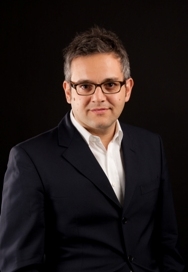
In 2007 he took the field by surprise with two important, widely cited, and deservingly prize winning articles: Early Experiments in Consumer Demand Theory, 1930-1970; and History of Consumer Demand Theory: 1930-1970. He has continued to publish prolifically on these subjects and like few in the field is able to blend philosophical insight, economic intuition and relevance with clear historical sensibility. Since his PhD in 2003 at the University of Florence, Moscati has taken part of the conversation about the disciplinary future of the History of Economics as one of the younger faces of that debate. Moscati teaches at Bocconi University in Milan and at the University of Insubria, and has recently become Associate Editor of the Journal of Economic Methodology. A book of his lecture notes on the history of economics is forthcoming this year.
1. What do we know, and what don’t we know of the history of choice theory?
I think that we have sufficiently good stories and reconstructions of the theory of choice before WWII. We know much less about the post-WWII history of choice theory. For instance, we still lack good histories of the theory of choice under uncertainty that originated in the work of Leonard Jimmy Savage (1954), the theory of boundedly-rational choice initiated by Herbert Simon (1955), or the work in applied demand theory pioneered by Richard Stone (1954). The development of choice theory after WWII has been characterized by, among other things, an intense importation of insights, conceptualizations and techniques from other disciplines, such as mathematical psychology. Although Floris Heukelom and other colleagues are already working on these topics, I think that we still know too little of the interdisciplinary exchanges that, even before the rise of behavioral economics, have influenced the development of choice theory after WWII.
2. What is the main insight history promises practicing economists?
Responding first about history of economics in general, I remain optimistic that, by making economists cognizant of the complex origins of their theories, history may render them “better economists”. That is, history can help them to understand better the strengths and limits of their theories, to see that what they take for granted maybe is not so, and thus provide economists with inspiration and guidance for novel and significant research.
Turning now to the history of choice theory, I think that it has a particular role to play in the latest incarnation of a debate that has engaged choice theorists at least since the marginal revolution of the 1870s, namely that concerning the contested relationship between economics and psychology. Today’s confrontation involves, on the one side, behavioral and neuro- economists who put forward choice models that are psychologically or neurologically more realistic than traditional economic models, and, on the other side, more orthodox economists who defend traditional models on various theoretical and methodological grounds. Both sides of this present dispute tend to ignore previous discussions. By placing the current debate in historical perspective, by reminding present economists of the answers that past economists gave to questions analogous to those currently asked, the historian could render the present debate more informed and productive.
3. What should we expect to read from you in the near future?
For a while now I have been working on a long-term research project on “the history of utility measurement from the marginal revolution to neuroeconomics.” Since the marginal revolution, the economic theory of individual decision making and the economic theory of social welfare have been based on the notion of utility. The problem with utility, however, is that it is not measurable in a straightforward way, and this circumstance has generated a number of discussions and developments within economics. To complicate the picture, the way in which utility theorists conceived of measurement, that is, their understanding of what it means to measure a thing, as well as the methods that they devised to measure utility, have changed over the course of time. I am trying to reconstruct the multifaceted history of utility measurement, to understand the interplay between the utility theorists’ understanding of measurement and their utility analysis, and to investigate how the understanding and practice of measurement in philosophy, mathematics, psychology and other disciplines have influenced utility theorists. So, I think that for a while I shall continue to bother you all with papers on the history of utility measurement, hoping that, in due time, all this will become a book.



